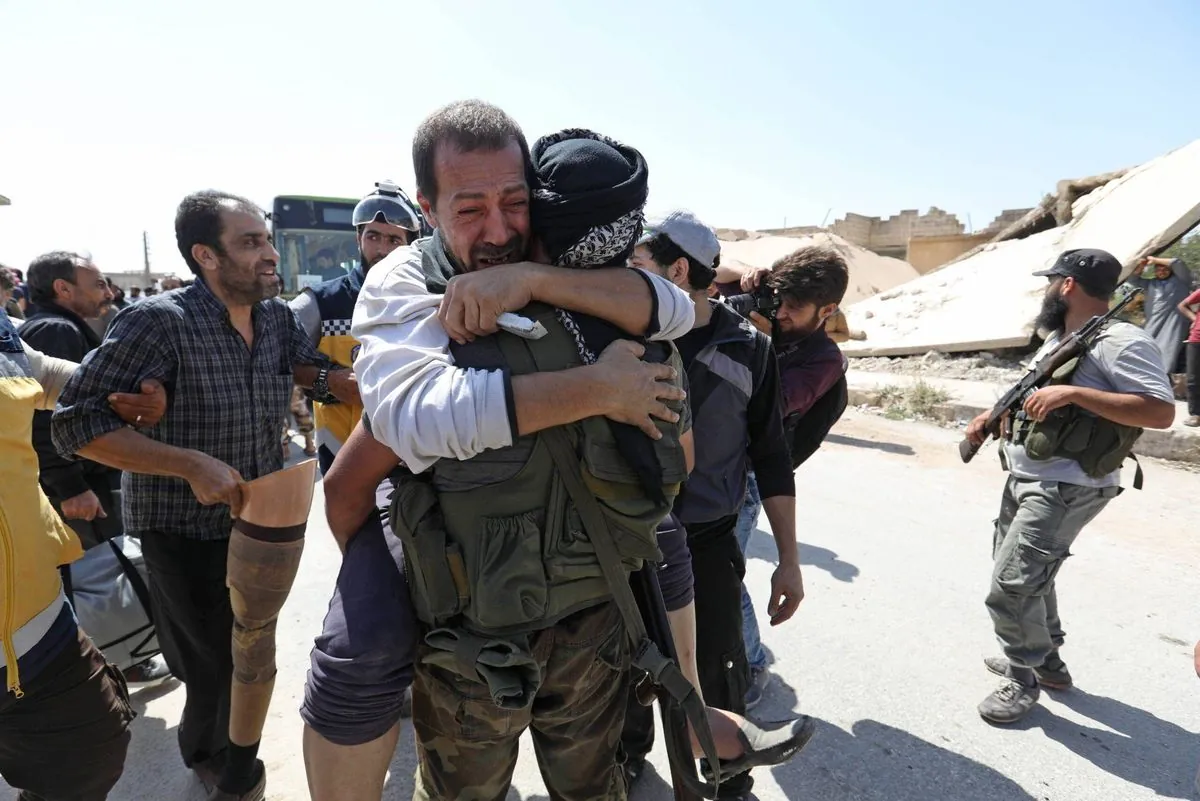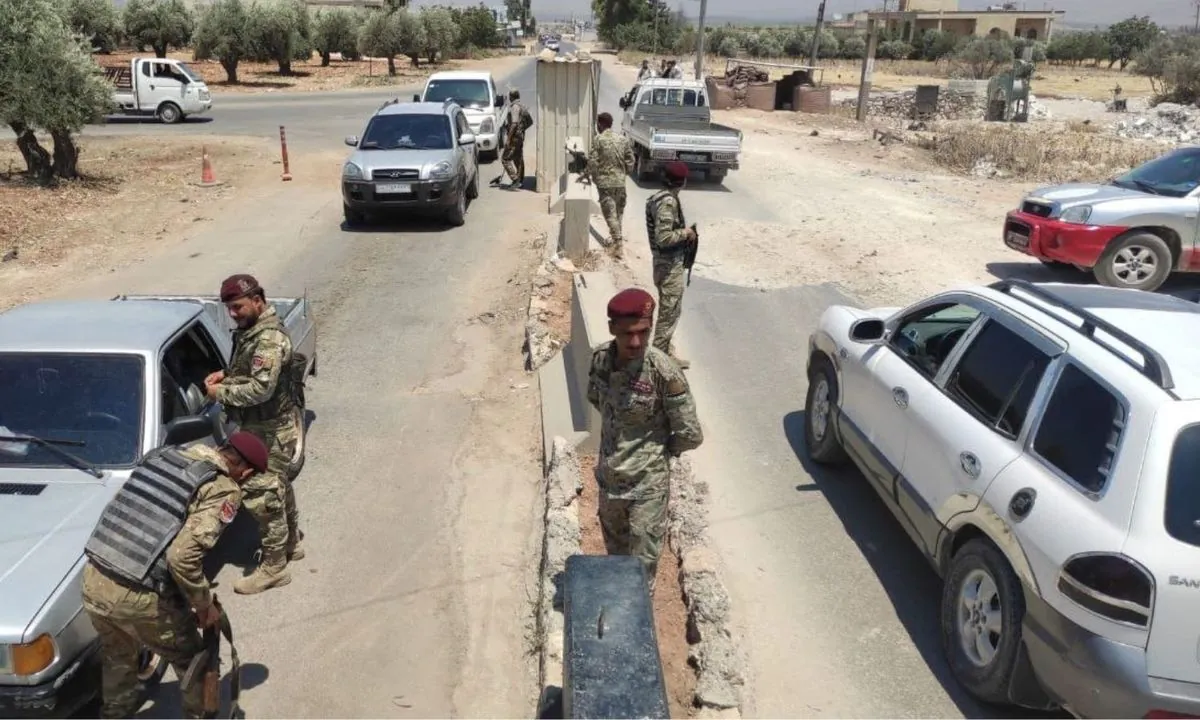Syria's Abu al-Zandin Crossing Closes Amid Protests and Shelling
The Abu al-Zandin crossing in Syria briefly reopened after years of closure, but quickly shut down due to protests and artillery fire. The incident highlights ongoing tensions in the war-torn country.

In a recent development in Syria's ongoing conflict, the Abu al-Zandin crossing in Aleppo province has been closed once again following a brief reopening. The crossing, which connects government-controlled areas with opposition-held territories, had been shuttered since 2020.
On August 18, 2024, a trial reopening allowed a few trucks to pass through the crossing. However, this move was met with strong opposition from local groups who viewed it as a step towards normalizing relations with the government of Bashar Assad. Protests erupted, and a sit-in was organized by local activists.
The situation escalated rapidly, with the crossing reportedly being hit by artillery fire on two consecutive days. The source of the shelling remains unidentified. According to the Syrian Observatory for Human Rights, a Britain-based war monitor, armed individuals opposed to the crossing's reopening forced several trucks to turn back as they approached government-held areas.

An official from the Turkish-backed opposition government, speaking anonymously, confirmed plans to reopen the crossing but denied any intention to normalize relations with Damascus. The official stated, "The opening of crossings, whether commercial or humanitarian ... is not linked to reconciliation."
This incident is set against the backdrop of Syria's protracted conflict, which began approximately 14 years ago as part of the Arab Spring protests. The war has had devastating consequences for the country and its people. Over 6.6 million Syrians have been forced to flee as refugees, while the conflict has caused extensive damage to Syria's infrastructure and economy.
The Syrian Civil War has involved multiple domestic and international actors, complicating efforts to resolve the conflict. Russia and Iran have been major allies of the Assad government, while the United States and other Western countries have supported various opposition groups. The war has also led to the rise and fall of the Islamic State (ISIS), which at one point controlled large parts of Syrian territory.
Despite the ongoing tensions, there have been recent signs of potential diplomatic thaws. In June 2024, both Turkish President Recep Tayyip Erdogan and Syrian President Bashar Assad expressed interest in restoring diplomatic ties that have been severed for over a decade. However, previous reconciliation attempts have not been successful.
The conflict has had significant geopolitical implications for the Middle East region. Kurdish groups have established autonomous regions in northern Syria, leading to military operations by Turkey against these forces. The war has also resulted in the destruction of many historical and cultural sites, further devastating Syria's rich heritage.
As the situation at the Abu al-Zandin crossing demonstrates, the path to peace and normalization in Syria remains fraught with challenges. The incident serves as a reminder of the deep-seated tensions and complexities that continue to shape the country's future.
"The opening of crossings, whether commercial or humanitarian ... is not linked to reconciliation."


































